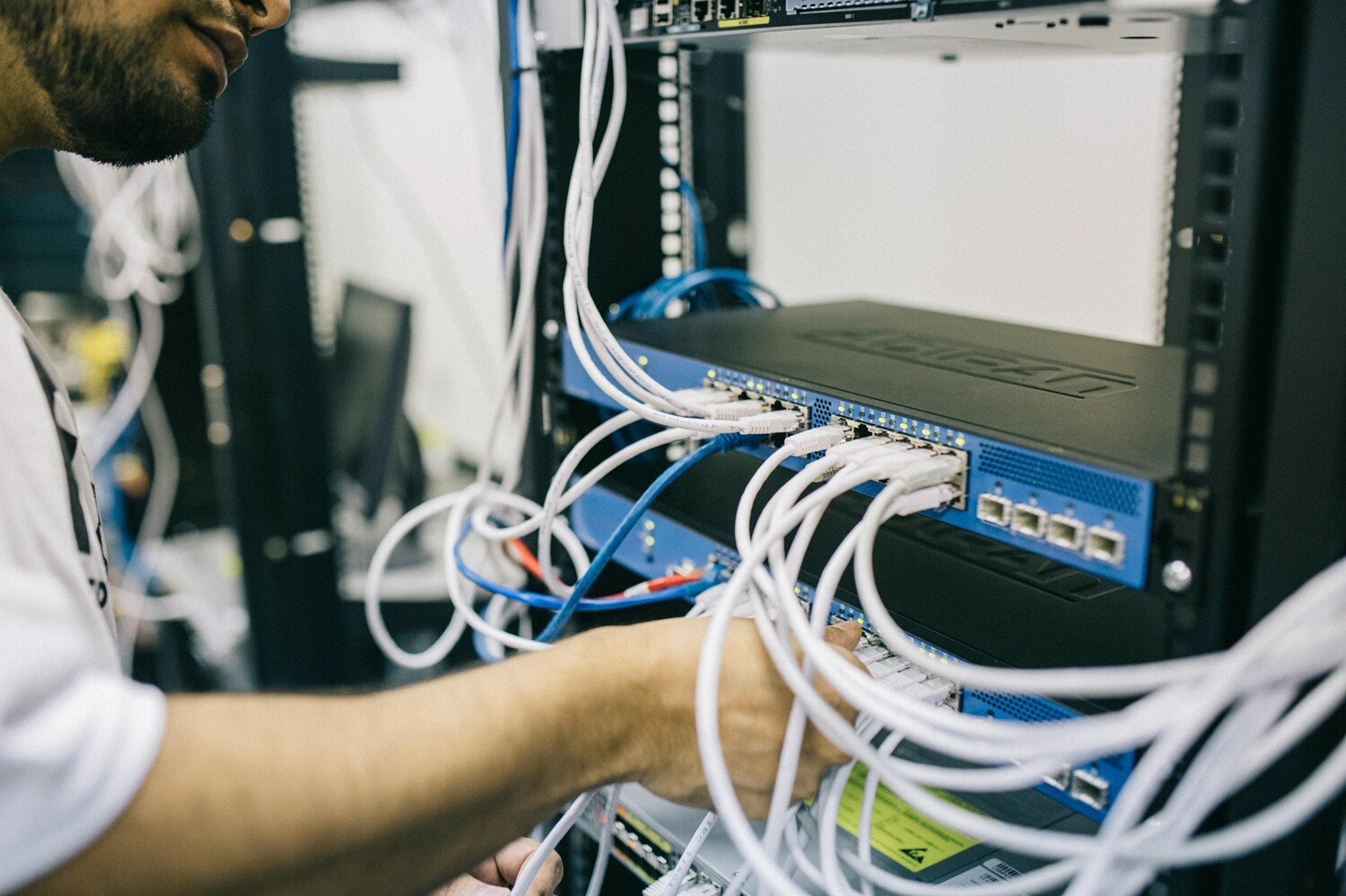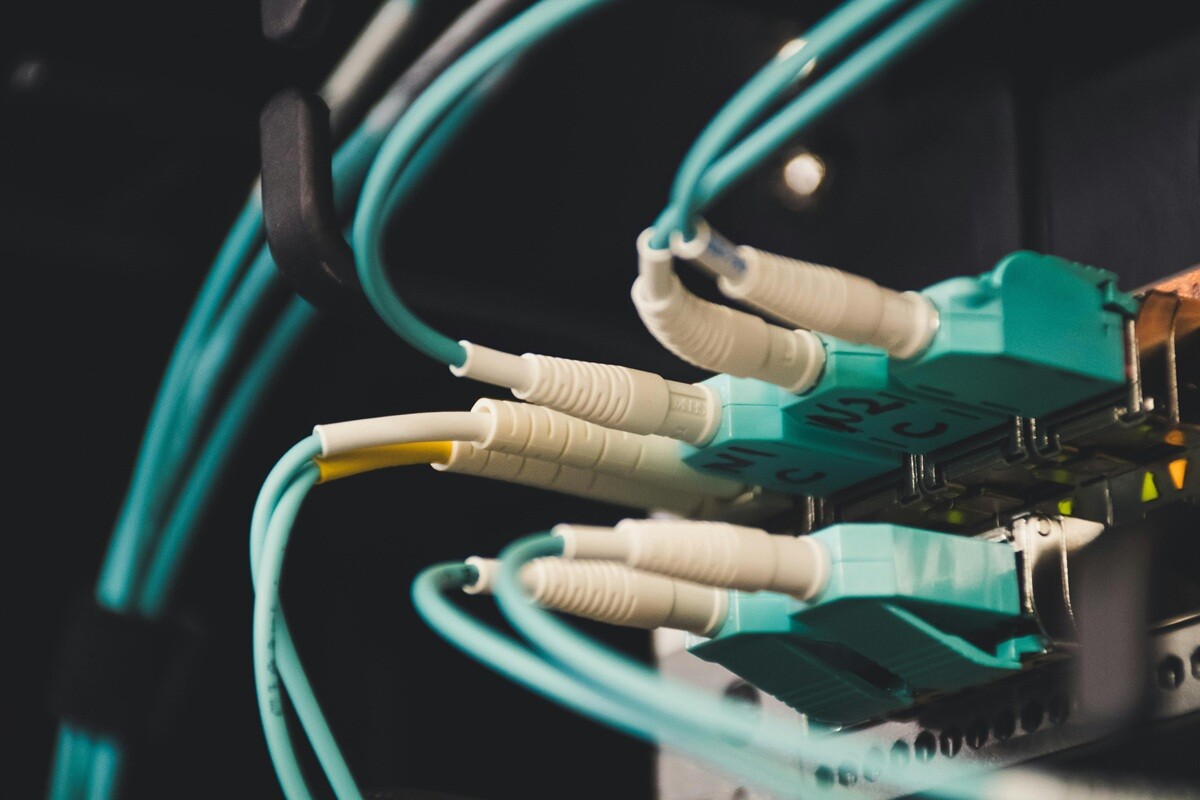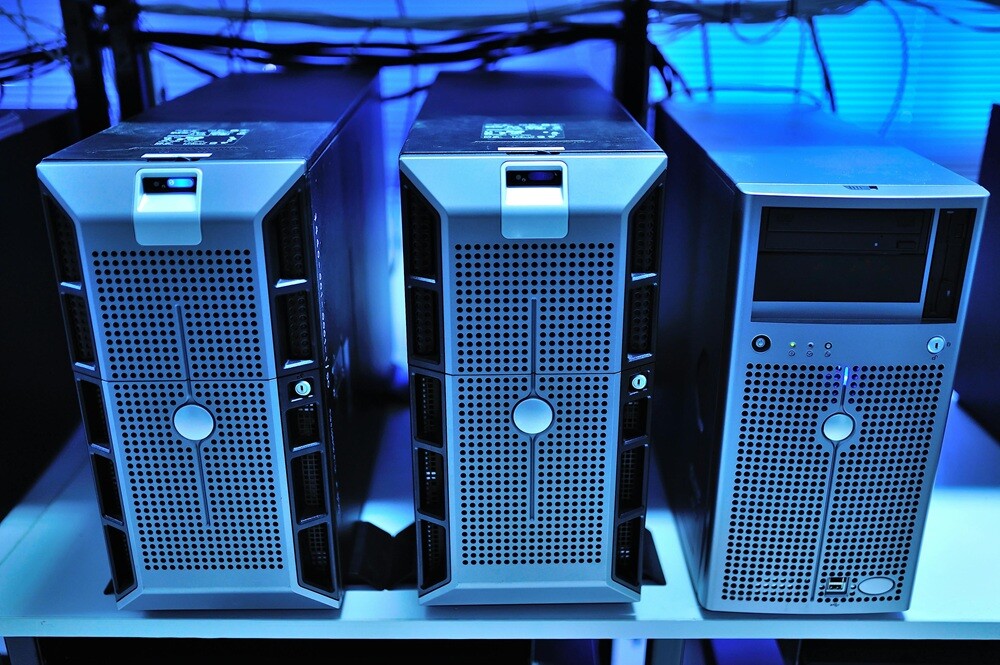BLOG
Civo partners with Orbital to pilot carbon removal technology at UK data center
UK cloud firm Civo is partnering with a carbon removal company. Orbital Materials, which develops carbon removal products for the data center market, has partnered with UK-based web hosting firm Civo to deploy its technology at one of Civo’s UK data centers.
The pilot project will see Orbital deploy its novel carbon removal technology at a Civo data center and see Civo support Orbital in developing new materials and technology that could markedly improve the sustainability and efficiency of data centers.
The initial deployment is expected to be deployed at an undisclosed UK data center by the end of 2025. In addition, Civo will provide Orbital access to a high performance compute cluster with H200 Nvidia GPUs to support its AI model training, which is integral in the development of its carbon removal technology.
Orbital has already developed a number of proprietary technologies for the data center market out of their research facility in Princeton, New Jersey, US. This includes dual-use chillers, that provide data center level heat ejection then use the waste heat to capture CO2, and extreme liquid cooling.
According to the company, it has already achieved a 10x improvement in the performance of the material through the use of its AI platform.
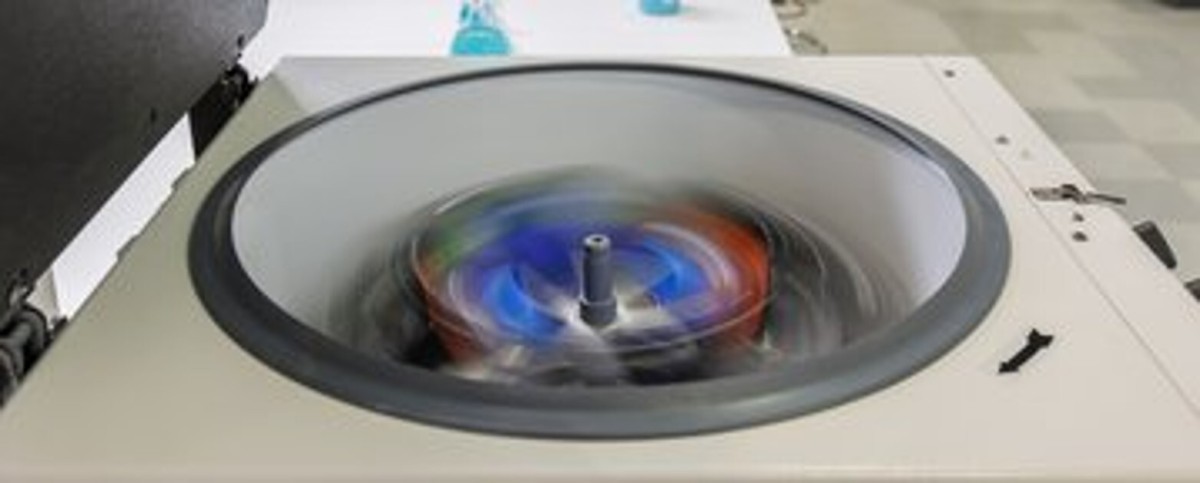
Accelsius tests ability to cool 4,500-watt chips
Liquid cooling firm Accelsius claims to be able to keep chips cool up to 4,500 watts. The company recently conducted two tests to demonstrate that its offerings are able to meet the future cooling demands of upcoming high-capacity GPUs.
Accelsius tested a thermal test vehicle representative of a GPU socket. In the experiment, the company said the cold plate was heated to 4,500W before reaching the power limit of the test infrastructure, not the cooling system.
In a second test, Accelsius said it successfully demonstrated the ability of its in-row two-phase CDU to cool a full 250kW rack of AI servers. A four-way H100 server was retrofitted with two-phase cold plates directly contacting the switches, CPUs, and GPUs, and then installed in a "densely configured" 250kW rack.
The CDU was subjected to facility water (PG25) at 20°C, 30°C, and 40°C, (68-104°F) and 375 liters per minute of flow. Even under maximum rack load and using 40°C inlet temperatures, the junction temperature of the hottest GPU remained below Nvidia’s thermal throttle limit (~87°C or 188.6°F).
Texas-based Accelsius was founded in 2022 by Innventure LLC. The company is commercializing technology developed by Nokia's Bell Labs. Accelsius’ NeuCool technology had been developed for five years by Bell Labs but was not productized. No Bell Labs staff came to Accelsius.
NeuCool’s system sees vaporators (also known as cold plates) mounted directly to targeted hot-spot chips. Dielectric refrigerant flows through the vaporators, where it nucleates into a vapor, which then travels to a CDU and condenses back into a liquid in a closed-loop system, then returning to the vaporator for additional cooling.
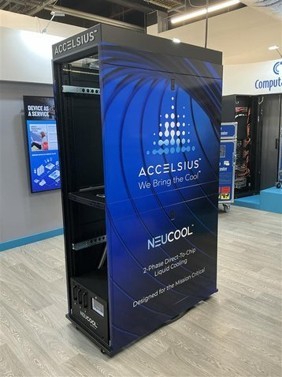
Nvidia claims it will make AI supercomputers in the US, with new factories
Nvidia plans to produce AI supercomputers 'entirely' in the US, amid the looming specter of growing tariffs. The GPU giant said that it would work with its manufacturing partners to commission more than a million square feet of manufacturing space to build and test Blackwell GPUs in Arizona and AI supercomputers in Texas.
The Blackwell chips have already started production at TSMC’s fabs in Phoenix, Arizona, which were initially funded under the Biden-era CHIPS Act.
Foxconn plans to build supercomputer manufacturing plants in Houston, while Wistron will set up shop in Dallas. Nvidia said that it expects mass production at both plants to ramp up in the next 12-15 months.
Nvidia said that within the next four years of the Trump term, it plans to produce up to half a trillion dollars of AI infrastructure in the United States through its partnerships. It will use its AI, robotics, and digital twin technologies to design and operate the factories, including Omniverse to create digital twins of the facilities and Isaac GR00T to build robots to automate manufacturing.
In March, TSMC announced that it would invest $100 billion into the US - with it unclear how much of the previous figure is included in the number - after President Trump criticized Taiwan for 'stealing' America's chip business, said that the CHIPS Act was a failure, and threatened tariffs.
In March, TSMC announced that it would invest $100 billion into the US - with it unclear how much of the previous figure is included in the number - after President Trump criticized Taiwan for 'stealing' America's chip business, said that the CHIPS Act was a failure, and threatened tariffs.
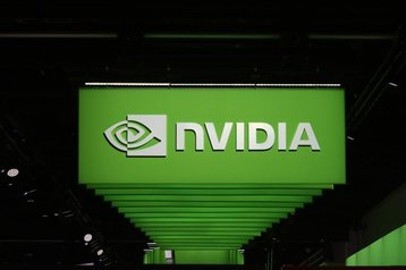
Google unveils seventh-generation TPU, Ironwood
Google has unveiled its seventh-generation Tensor Processing Unit (TPU), Ironwood. Announced at the company’s Next ‘25 event in Las Vegas, Google said it is the first TPU designed specifically for inferencing.
Built to support the computational requirements of what Google dubbed “the next phase of generative AI,” Ironwood comes in two liquid-cooled sizes based on AI workload demands, a 256 chip configuration and a 9,216 chip configuration.
Google says each individual chip boasts a peak compute of 4,614 teraflops and, when scaled to 9,216 chips, each pod totals 42.5 exaflops – which the company claims is more than 24x the computer power of the world’s most powerful supercomputer El Capitan, which offers 1.742 exaflops per pod.
Speaking at a press briefing ahead of the launch, Amin Vahdat, VP and general manager of ML systems and cloud, said that Ironwood is nearly 30x more power-efficient than the first cloud TPU from 2018 and almost twice as efficient as Trillium.
Additionally, Google said its Hyperdisk Exapool network block storage offering provides allows users to provision up to an exabyte of block storage capacity, the highest performance and capacity per AI cluster of any hyperscale, while a new Cloud Storage zonal bucket provides up to 20x faster random-read data loading than a Cloud Storage regional bucket, enabling users to colocate their primary storage with TPUs or GPUs.
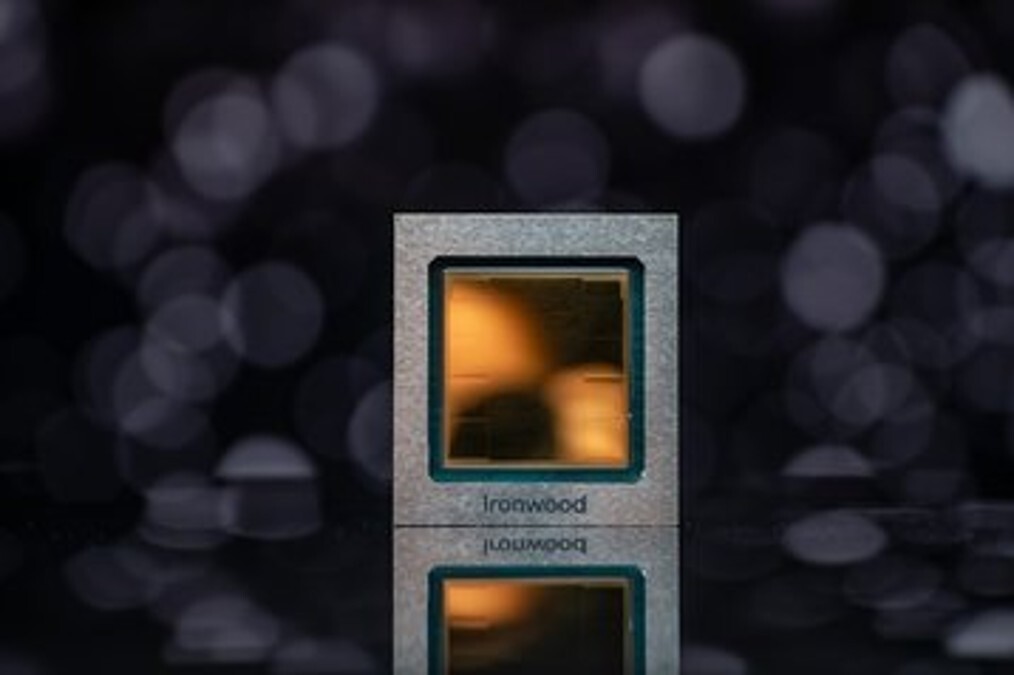
Yorizon and Hochtief break ground on timber Edge data center in Bad Lippspringe, Germany
Construction work has begun on a new liquid-cooled Edge data center in central Germany. Yorizon Cloud and Hochtief this week announced a groundbreaking ceremony for its latest facility in Bad Lippspringe. Completion of the 2MW site is scheduled for summer 2026.
Bad Lippspringe is a town in the district of Paderborn, in North Rhine-Westphalia, in central Germany.
Yorizon is a cloud joint venture launched last year between ACS-owned construction firm Hochtief and server maker Thomas-Krenn.AG. It will operate out of ‘Yexio’ facilities developed by Hochtief and populated by IT hardware from Thomas-Krenn.
The modular facilities will use direct-to-chip liquid cooling and a closed-loop cooling system. The sites aim to offer waste heat to local district heating networks.
Founded in 2012, Palladio Partners primarily invested in domestic and international infrastructure assets on behalf of German pension funds. It has some €9.9 billion ($10.99bn) in assets under management.
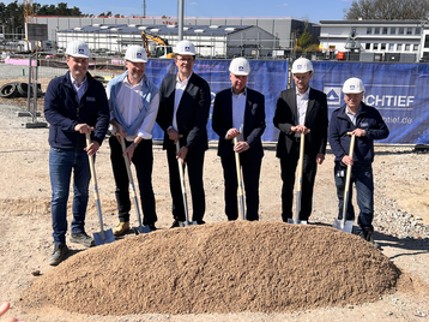
Equinix launches ST2 facility expansion in Pudahuel, Chile
Equinix has launched the expansion of its ST2 facility in Santiago, Chile.
As announced in a recent LinkedIn post, the facility saw an investment of $50 million, bringing the company’s cumulative investment in Chile to more than $1 billion.
ST2, located in the Pudahuel area of the capital, is the first data center in Chile designed with liquid cooling technology, according to Equinix.
Further specifications of the expansion have not yet been shared.
The company already has four data centers in Chile, three of which it acquired from Entel in 2022. The four facilities - ST1, ST2, ST3, and ST4 - total over 7.5MW in IT capacity and have a combined area of 7,536 sqm (81,000 sq ft).
Equinix is also currently building a fifth facility - ST5 - also in the Pudahuel district. When complete, ST5 will comprise 16 data rooms across two stories.
Equinix operates 85 data centers across Latin America in Brazil, Colombia, Mexico, and Peru.
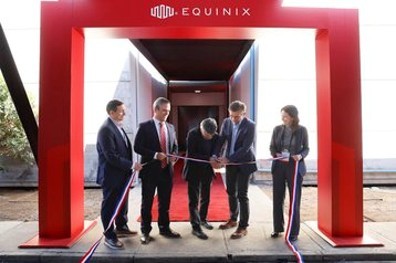
Colt DCS to develop four more data centers in Germany totaling 117MW
Colt Data Centre Services (Colt DCS) aims to develop four new data centers in Germany. The company this week announced plans for Frankfurt 4 & 5 and Berlin 1 & 2. The two Frankfurt data centers will be built on an 18-acre site east of Frankfurt in Wiesbaden and provide a combined 63MW, while the Berlin data centers will be constructed on a 9.5-acre site 10km east of the capital and provide a total 54MW of IT capacity.
The new data centers will add 117MW to Colt DCS' capacity in Germany, bringing its total in-country capacity to 176MW.
The company said it would be investing €2 billion in the projects. The facilities will feature hybrid air and liquid (direct-to-chip) cooling and will be able to offer densities of up to 130kW per rack. Waste heat from all the sites will be reused by the local councils for district heating.
Spun off from Colt Technology Services in 2015, Colt DCS’s data center portfolio includes 13 operational facilties, with an additional nine in development across 11 cities in the UK, Europe, and the APAC region.
In the works since 2019, Colt DCS completed the fit-out of Frankfurt West in August 2023; the facility offers 25MW of capacity across 14 data halls. Frankfurt West was fully pre-let as of September 2020 by unnamed hyperscale customers.
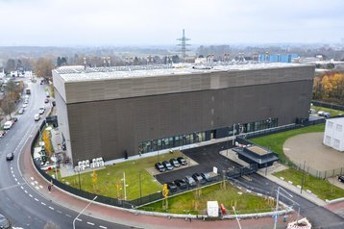
Micron to impose tariff surcharge on memory modules and SSDs
Micron has told customers in the US it plans to impose a surcharge on some products as a result of President Donald Trump’s recently imposed tariffs.
Citing four sources familiar with the matter, Reuters reported that the memory chipmaker had told customers that whilst semiconductors are currently not subject to tariffs, a surcharge will be placed on memory modules and SSDs (solid-state drives) starting April 9.
Micron has a number of manufacturing sites in East Asia, including Taiwan, Japan, Malaysia, and Singapore. Under Trump’s newly introduced tariff regime, those countries are facing tariffs of 32 percent, 24 percent, 24 percent, and 10 percent, respectively.
The company also has a manufacturing base in China, a country that saw a 34 percent tariff placed on it over the weekend but has since been threatened with an additional 50 percent tariff by Trump after the country announced it would be imposing reciprocal tariffs on the US.
Under the Biden Administration, Micron was awarded $6.165 billion in direct funding under the CHIPS and Science Act to support the construction of three new memory chip fabs in Clay, New York, and Boise, Idaho. The company had pledged to invest approximately $100 billion in New York and $25 billion in Idaho, which will create approximately 20,000 jobs.
In January 2025, Trump pledged to “return production” of computer chips and semiconductors to the United States by imposing a “100 percent tax” on their overseas production, claiming that tariffs would incentivize companies to manufacture chips in the US instead of Taiwan.
Despite this, the President has yet to impose any tariffs on semiconductors.
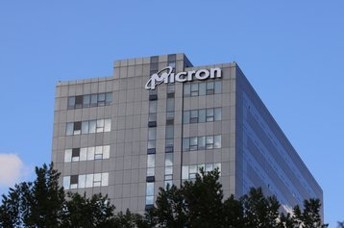
Bit Digital acquires site for third Montreal data center
Bit Digital has acquired an in-development data center site outside Montreal, Canada. The new site is set to be leased to Cerebras. The company recently announced it has secured the rights to a new data center site under development in Saint-Jérôme, Québec (MTL-3).
The facility is being retrofitted to Tier III standards, with development costs expected to total approximately CA$55 million (approximately US$40m), and a targeted go-live date of July 2025.
The facility is being retrofitted to Tier III standards, with development costs expected to total approximately CA$55 million (approximately US$40m), and a targeted go-live date of July 2025.
The company acquired a second site – MTL2 – in December for CA$33.5 million (US$24m). The 5MW, 160,000 sq ft (14,865 sqm) site has been designed with direct-to-chip liquid cooling and peak rack density of up to 150kW. Previously used as an encapsulation manufacturing facility, it is set to go live in mid-2025.
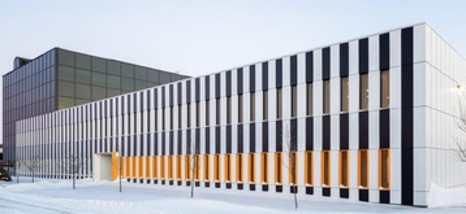
Edged tops out Phoenix data center in Arizona
Data center firm Edged has topped out its latest facility in Phoenix, Arizona. The company last week announced the ‘topping out’ of its data center in Mesa in a ceremony alongside local general contractor Haydon Building Corp.
The 36MW facility, known as Edged Phoenix, is expected to be fully operational by late 2025.
The data center will use a waterless cooling system from sister company ThermalWorks that can support densities of up to 70kW per rack with air cooling and 200kW per rack with plug-and-play liquid cooling integration.
Edged (formerly Edged Energy) is part of Endeavour, which was set up by Aligned founder Jakob Carnemark. The company has data centers either operating or in development in Bilbao, Madrid and Barcelona in Spain; Lisbon, Portugal; and across the US including Missouri, Arizona, Texas, Georgia, Iowa, Ohio, and Illinois.
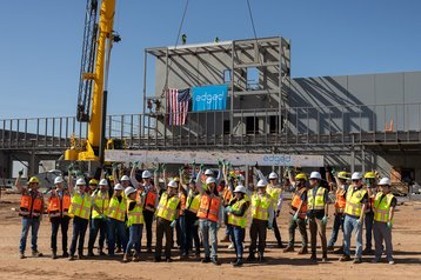
Leave A Reply
LOGO
This stunning beach house property is a true oasis, nestled in a serene coastal community with direct access to the beach.
Opening Hours
Monday - Friday : 9AM to 5PM
Sunday: Closed
Closed during holidays
Contact
+18888888888
hezuo@eyingbao.com123 West Street, Melbourne Victoria 3000 Australia

